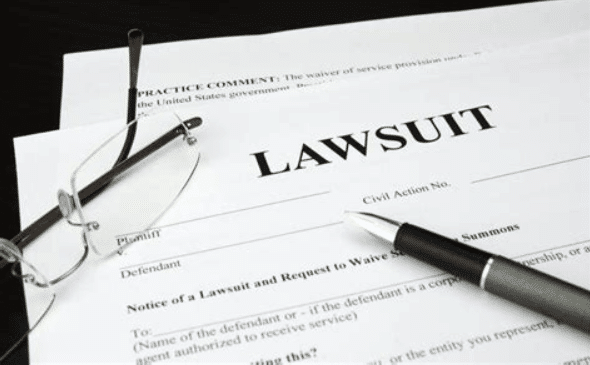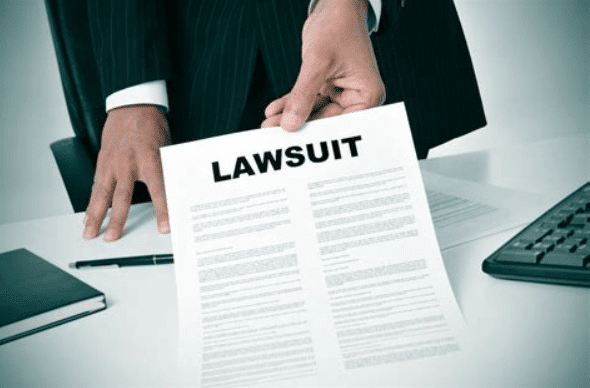When you get sued for a debt, it’s best to watch your case status as closely as possible. In South Dakota, you can search your court case records at the courthouse where your case is filed or online. Use ZumaZip.com to respond to the lawsuit and increase your chances of winning.
Debt collectors know how to make a consumer’s life, like yours, complicated. If they fail to cause misery with the constant calls or emails, they resort to filing a debt collection lawsuit. If you have received a suit from a collection agency, do not despair, you can fight it in court. But first, you need to file an Answer, then follow up on your case records to help you prepare for court.
South Dakota allows its citizens to access their court records online through the state-wide public access portal or by making a trip to the courthouse where the creditors filed the case. Viewing your records helps you access information missing in the Complaint and Summons, and you can get additional documents the creditor may have included. Today, ZumaZip.com will show you how to access your case records. But first, you should understand how the South Dakota court system works.
Court structure in South Dakota
Understanding how South Dakota’s court structure works it will be easier for you to find your court case. Knowing what type of court has jurisdiction over your case, you will know where your case has been filed. Since debt collection lawsuits are considered civil cases, we will focus on the civil court structure in this section.
South Dakota has one of the simplest court structures in America. They have two court levels, with another minor one operating with the second level. The structure helps the judicial system to work in unison.
South Dakota has three levels of courts that handle civil cases:
- Supreme Court: This is the highest court in the state and has exclusive jurisdiction over various issues, either by right or permission. This court decides whether they’ll review a case by assessing its merit. If they accept the appeal, the justices review the records from the previous court’s proceedings and may permit oral arguments. The judges also monitor how the entire judicial system operates—they ensure the rules are followed and discipline accorded where necessary.
- Circuit Court: This court is the state’s trial court and has original jurisdiction over all civil cases. They also have exclusive jurisdiction in various civil actions and felony trials. Circuit Courts listen to witnesses, hear arguments, and accept evidence before ruling. Parties can appeal to the Supreme Court if dissatisfied with the court’s decision.
- Magistrate Court: This court works under the Circuit Court and has limited jurisdiction over minor civil actions. They hear small claims matters and damages not exceeding $12,000. The clerks in these courts receive special training and can preside over minor issues, but overall, the magistrate judges hear most of the cases.
Your debt collection case will be heard in your County’s courthouse, which houses the Magistrate Court. The small claims division in the Magistrate court processes these cases within 60 days and allows the parties to represent themselves.
How to find your case number in South Dakota
A case number is an identification method that court clerks use to keep track of all matters presented to them. It also helps them quickly access records for court proceedings or when you make a request. The number is derived from a combination of factors such as:
- The year the creditors filed the case
- The court type
- The case type
- The judicial officer’s or judge’s initials
Your lawsuit will come with a case number indicated in the introductory section. If you do not have it, South Dakota allows you to access it by visiting the courthouse and making a request. You can also use the South Dakota eCourt portal to search by entering your details on the name search (case look-up) option. The results will produce your case number and additional case information.
How to access your court records in South Dakota
Preparing for your case or not can determine if the court will allow the collection agency to access your bank account, put a lien on your property, or garnish your wages. Ensure you do proper research to check if the collection agency got all the information right in the court documents they filed. And to do that, you need to access the case records. Here’s how to go about it.
Access your court records in person
Accessing your records in person means taking a trip to the courthouse. It is convenient to use this method if the court is minutes away from your home or office. First, you need to find the location using this South Dakota courts directory. Next, look for your county or city using the court finder search and click on it. You’ll be instantly redirected to a new page with the contact information for the physical address of the court clerk.
In the courthouse, the clerk will give you a form to fill in, and the details you provide will be used to find your documents. Try to be as accurate as possible—even with the spellings. Other courthouses have public terminals for citizens to search for the records by themselves.
Does the process sound challenging? Let’s look at a practical scenario to iron things out.
Example: Jason had an outstanding debt of $9,210 with Midwest Credits (MC), which he had failed to pay for ten months. An MC agent had called him countless times and threatened him with arrest, but he still could not pay. Three weeks later, he received a debt collection lawsuit. Jason knew he could not ignore the suit due to the many stories he had heard of creditors garnishing wages. He found ZumaZip’s videos and learned how to respond with an Answer. Jason explained his defenses, including the violation of his rights. Once he realized he had a strong case, Jason opted to visit the courthouse to access his records. He noted his case number, looked for the Sully County court location online, went, and the court clerk located his records. He paid $2.50 for the copies. The clerk advised him to check for additional details online instead of going to the courthouse.
Access the court records online
Online access is the quickest way to view your records using the case number option. You must first register a free public account to access your court documents in the South Dakota eCourt online access portal. Next, confirm your registration via email, and you’ll be allowed to sign in.
Once in the portal, you can use the case number or the case look-up option, which requires you to fill in your:
- Full names
- Date of birth
- Case file date
- Case type
- Case location
- Case status
Click search and you’ll immediately access your case records.
ZumaZip can help you
If you’re being sued for a debt, our team works hard to help consumers deal with their debt situation. We offer various documents to help a debtor respond to the creditor at different stages of the collection process. These documents include:
- Debt Validation Letter: When debt collectors initially reach out, send them this letter to force them to validate your debt. If they cannot prove that you owe the exact amount they claim, with proper documentation and evidence, then they must cease contacting you.
- Answer: If you have been sued for a debt you owe, the first step to winning your case is to respond to the lawsuit. You can draft and file your Answer with your court in minutes with ZumaZip’s services.
- Motion to Compel Arbitration: If you owe a credit card debt and are being sued for it, check your card agreement for an arbitration clause. If the clause exists, you can file a motion to force the case out of court and have an arbitrator help you reach a debt settlement with the opposing party.
- ZumaZip Settle: When you know you owe the money that you’re being sued over, and you have enough on hand to pay some of it off, reaching a debt settlement is a great option. This letter will help you start the debt settlement negotiation process.
What is ZumaZip?
ZumaZip is a convenient solution designed to streamline your response to a debt collection lawsuit. Here’s a breakdown of what you can expect when you use ZumaZip:
Firstly, you’ll access our user-friendly web application, which guides you through the process step by step. You’ll be prompted to answer a series of questions related to your specific situation. Once you’ve completed the questionnaire, you have the option to either print out the finalized forms and mail them to the appropriate courts yourself, or you can opt to utilize ZumaZip’s services to file them on your behalf. Additionally, if you choose this option, an attorney will review your document for added peace of mind.
If you’re seeking guidance on how to effectively respond to a debt collection lawsuit, ZumaZip can provide the assistance you need. Feel free to explore our FAQs for more information on what ZumaZip has to offer.
What if I haven’t been sued yet?
If you’ve only received a collections notice, but not a lawsuit, the best way to respond is with a Debt Validation Letter. When a debt collector contacts you in any way, whether it’s by phone or mail, you can respond by formally requesting a debt validation with a Debt Validation Letter . This letter notifies the collector that you dispute the debt and forces them to provide proof you owe the debt. They can’t call you or continue collecting until they provide validation of the debt. This flowchart shows how you can use a Debt Validation Letter to win.
Get started with a Debt Validation Letter here.
How to Answer a Summons for debt collection in all 50 states
Here’s a list of guides on how to respond to a debt collection lawsuit in each state:
- Alabama
- Alaska
- Arizona
- Arkansas
- California
- Colorado
- Connecticut
- Delaware
- Florida
- Georgia
- Hawaii
- Idaho
- Illinois
- Indiana
- Iowa
- Kansas
- Kentucky
- Louisiana
- Maine
- Maryland
- Massachusetts
- Michigan
- Minnesota
- Mississippi
- Missouri
- Montana
- Nebraska
- Nevada
- New Hampshire
- New Jersey
- New Mexico
- New York
- North Carolina
- North Dakota
- Ohio
- Oklahoma
- Oregon
- Pennsylvania
- Rhode Island
- South Carolina
- South Dakota
- Tennessee
- Texas
- Utah
- Vermont; Vermont (Small Claims court)
- Virginia
- Washington
- West Virginia
- Wisconsin
- Wyoming
Guides on how to beat every debt collector
Hey there! Facing off against a debt collector can feel like a daunting challenge, but fear not! We’re here to help you navigate through it all with our handy guides designed to assist you in beating every debt collector you encounter. Whether you’re facing a new lawsuit or dealing with a persistent collector, we’ve got your back. Stay positive, stay informed, and let’s tackle this together!
- Absolute Resolutions Investments LLC
- Accredited Collection Services
- Alliance One
- Amcol Clmbia
- American Recovery Service
- Asset Acceptance LLC
- Asset Recovery Solutions
- Associated Credit Services
- Autovest LLC
- Cach LLC
- Cavalry SPV I LLC
- Cerastes LLC
- Colinfobur
- Covington Credit
- Crown Asset Management
- CTC Debt Collector
- Cypress Financial Recoveries
- Delanor Kemper & Associates
- Eagle Loan of Ohio
- Educap
- Estate Information Services
- FIA Card Services
- Forster & Garbus
- Freshview Solutions
- Fulton Friedman & Gullace LLP
- Harvest Credit Management
- Howard Lee Schiff
- Hudson & Keyse LLC
- Integras Capital Recovery LLC
- Javitch Block
- Jefferson Capital Systems LLC
- LVNV Funding
- Mannbracken
- Mariner Finance
- Medicredit
- Michael J Adams PC
- Michael J Scott
- Midland Funding LLC
- Mullooly, Jeffrey, Rooney & Flynn
- Mountain Land Collections
- MRS Associates
- National Collegiate Trust
- Nationstar Foreclosure
- Northstar Capital Acquisition
- NCEP LLC
- NRC Collection Agency
- OneMain Financial
- Palisades Collection LLC
- Pallida LLC
- Paragon Revenue Group
- Pinnacle Collections Agency
- PMAB LLC
- Portfolio Recovery Associates
- Provest Law
- PYOD LLC
- Reunion Student Loan Finance Corporation
- Revenue Group
- Regents and Associates
- RSIEH
- Salander Enterprises LLC
- Second Round Sub LLC
- Security Credit Services
- Sherman Financial Group
- Suttell and Hammer
- T-Mobile
- Transworld Systems
- Tulsa Teachers Credit Union
- UCB Collection
- Velo Law Office
- Velocity Investments
- Waypoint Resource Group
- Weinberg and Associates
- Wolpoff & Abramson
Settle your medical debt
Having a health challenge is stressful, but dealing medical debt on top of it is overwhelming. Here are some resources on how to manage medical debt.
- Am I Responsible for My Spouse’s Medical Debt?
- Do I Need a Lawyer for Medical Bills?
- Do I Need a Lawyer to Fight Medical Bill Debt?
- Does Bankruptcy Clear Medical Debt?
- How Much Do Collection Agencies Pay for Medical Debt?
- How to Find Medical Debt Forgiveness Programs
- Is There a Statute of Limitations on Medical Bills?
- Medical Debt Statute of Limitations by State
- Summoned to Court for Medical Bills — What Do I Do?
- Summoned to Court for Medical Bills? What to Do Next
Stop calls from Debt Collectors
Do you keep getting calls from an unknown number, only to realize that it’s a debt collector on the other line? If you’ve been called by any of the following numbers, chances are you have collectors coming after you, and we’ll tell you how to stop them.
- 800-390-7584
- 800-289-8004
- 800-955-6600
- 877-366-0169
- 877-591-0747
- 800-278-2420
- 800-604-0064
- 800-846-6406
- 877-317-0948
- 888-899-4332
- 888-912-7925
- 202-367-9070
- 502-267-7522
Other wage garnishment resources
- Bank Account Garnishment and Liens in Texas
- Can I Stop Wage Garnishment?
- Can My Wife’s Bank Account Be Garnished for My Debt?
- Can Payday Loans Garnish Your Wages?
- Can pensions be garnished?
- Can Private Disability Payments Be Garnished?
- Can Social Security Disability Be Garnished?
- Can They Garnish Your Wages for Credit Card Debt?
- Can You Stop a Garnishment Once It Starts?
- Guide to Garnishment Limits by State
- How Can I Stop Wage Garnishments Immediately?
- How Long Before a Creditor Can Garnish Wages?
- How Long Does It Take to Get Garnished Wages Back?
- How to Fight a Wage Garnishment
- How to Prevent Wage Garnishment
- How to Stop a Garnishment
- How to Stop Social Security Wage Garnishment
- How to Stop Wage Garnishment — Everything You Need to Know
- New York Garnishment Laws – Overview
- Ohio Garnishment Laws — What They Say
- Wage Garnishment Lawyer
- What Is Wage Garnishment?
Guides on Arbitration
If the thought of going to court stresses you out, you’re not alone. Many Americans who are sued for credit card debt utilize a Motion to Compel Arbitration to push their case out of court and into arbitration.
Below are some resources on how to use an arbitration clause to your advantage and win a debt lawsuit.
- How Arbitration Works
- How to Find an Arbitration Clause in Your Credit Agreement
- How to Make a Motion to Compel Arbitration
- How to Make a Motion to Compel Arbitration in Florida
- How to Make a Motion to Compel Arbitration Without an Attorney
- How Credit Card Arbitration Works
- Motion to Compel Arbitration in California
- Sample Motion to Compel Arbitration
Federal Debt Collection Laws Can Protect You
Knowing your rights makes it easier to stand up for your rights. Below, we’ve compiled all our articles on federal debt collection laws that protect you from unfair practices.
- 15 USC 1692 Explained
- Does the Fair Credit Reporting Act Work in Florida?
- FDCPA Violations List
- How to File an FDCPA Complaint Against Your Debt Collector (Ultimate Guide)
- How to Make a Fair Debt Collection Practices Act Demand Letter
- How to Submit a Transunion Dispute
- How to Submit an Equifax Dispute
- How to Submit an Experian Dispute
- What Debt Collectors Cannot Do — FDCPA Explained
- What Does Account Information Disputed by Consumer Meets FCRA Requirements Mean?
- What does “meets FCRA requirements” mean?
- What does FCRA stand for?
- What is the Consumer Credit Protection Act
Resolve Your Debt with Your Creditor
Some creditors, banks, and lenders have an internal collections department. If they come after you for a debt, ZumaZip can still help you respond and resolve the debt. Here’s a list of guides on how to resolve debt with different creditors.
- American Express; American Express – Debt Collection
- Bank of America
- Barclay
- Best Buy Credit Card
- Capital One
- Chase
- Credit One Bank
- Old Navy Credit Card
- PayPal Synchrony Card
- Regional Finance
- Retailers National Bank
- Reunion Student Loan Finance Corporation
- SYNCB/PPEXTR
- Synchrony Bank
- Synchrony Walmart Card
- Target National Bank
- Webbank
- Wells Fargo
- Can I Pay My Original Creditor Instead of a Debt Collection Agency?
- Can I Settle a Debt with the Original Creditor?
Check the Status of Your Court Case
Don’t have time to go to your local courthouse to check the status of your case? We’ve created a guide on how to check the status of your case in every state, complete with online search tools and court directories.
- Alabama Court Case Search—Find Your Lawsuit
- Alaska Court Case Search — Find Your Lawsuit
- Arizona Court Case Search – Find Your Lawsuit
- Arkansas Court Case Search — Find Your Lawsuit
- California Court Case Search- Find Your Lawsuit
- Colorado Court Case Search — Find Your Lawsuit
- Connecticut Case Lookup — Find Your Court Case
- Delaware Court Case Search — Find Your Lawsuit
- Florida Court Case Search — Find Your Lawsuit
- Georgia Court Case Search — Find Your Lawsuit
- Hawaii Court Case Search — Find Your Lawsuit
- Idaho Court Case Search – Find Your Lawsuit
- Illinois Court Case Search — Find Your Lawsuit
- Indiana Court Case Search — Find Your Lawsuit
- Iowa Court Case Search — Find Your Lawsuit
- Kansas Court Case Search — Find Your Lawsuit
- Kentucky Court Case Search — Find Your Lawsuit
- Louisiana Court Case Search — Find Your Lawsuit
- Maine Court Case Search — Find Your Lawsuit
- Maryland Court Case Search — Find Your Lawsuit
- Massachusetts Court Case Search — Find Your Lawsuit
- Michigan Court Case Search — Find Your Lawsuit
- Minnesota Court Case Search — Find Your Lawsuit
- Mississippi Court Case Search — Find Your Lawsuit
- Missouri Court Case Search — Find Your Lawsuit
- Montana Court Case Search — Find Your Lawsuit
- Nebraska Court Case Search — Find Your Lawsuit
- Nevada Court Case Search — Find Your Lawsuit
- New Hampshire Court Case Search — Find Your Lawsuit
- New Jersey Court Case Search—Find Your Lawsuit
- New Mexico Court Case Search – Find Your Lawsuit
- New York Case Search — Find Your Lawsuit
- North Carolina Court Case Search — Find Your Lawsuit
- North Dakota Court Case Search — Find Your Lawsuit
- Ohio Court Case Search — Find Your Lawsuit
- Oklahoma Court Case Search — Find Your Lawsuit
- Oregon Court Case Search — Find Your Lawsuit
- Pennsylvania Court Case Search — Find Your Lawsuit
- Rhode Island Court Case Search — Find Your Lawsuit
- South Carolina Court Case Search — Find Your Lawsuit
- South Dakota Court Case Search — Find Your Lawsuit
- Tennessee Court Case Search — Find Your Lawsuit
- Texas Court Case Search — Find Your Lawsuit
- Utah Court Case Search — Find Your Lawsuit
- Vermont Court Case Search — Find Your Lawsuit
- Virginia Court Case Search — Find Your Lawsuit
- Washington Court Case Search — Find Your Lawsuit
- West Virginia Court Case Search — Find Your Lawsuit
- Wisconsin Court Case Search — Find Your Lawsuit
- Wyoming Court Case Search — Find Your Lawsuit
































